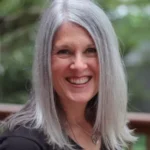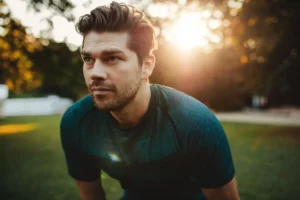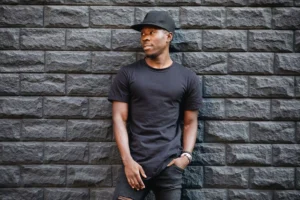Part 2: Plenty of Men to Go Around »
What’s the best way to find a mentor? And to get her to agree to spend time with you?
Those are the questions I left you with last time in part 2 of this series. I asked two of the women who’ve mentored me to talk about their mentoring.
The first, Mary Morken, is wife of Dr. Hubert Morken whose provocative challenge to a class full of graduate students, “Get married and make babies!” changed the course of my life. Later Mary issued her own life-changing challenge to me to not take my fertility for granted. Together Mary and Hu, champions of Christian marriage and family formation, have matched and mentored over 30 couples.
The second, Phyllis Stanley, has been teaching women about biblical femininity for 15 years, about how “God created them male and female” and what that difference looks like in daily living. Her encouragement dramatically altered my priorities over the past year, including giving me a new perspective on and appreciation for my role as wife, mother and homemaker.
Their stories demonstrate the good that comes when older Christians simply, faithfully pour their lives into the younger believers following them. Rather than walk on, oblivious to those behind them, they’ve made an effort to turn around and lend a hand.
I asked both Mary and Phyllis about their experiences, particularly in the area of preparing young women for marriage. Here’s what they had to say.
Boundless: What motivated you to start mentoring?
Mary Morken: Paul said he gave not only the gospel but “his own life also.” We took that in the sense of being role models and helping people learn how to live as well as how to be Christians. Also, because we’d had so many college friends leave the faith and also suffer divorce, we wanted to strengthen Christians because we knew they could suffer great loss, lacking wisdom.
Phyllis Stanley: Being involved with young women and young men is something we have done intentionally since campus ministry with the Navigators in the 70s. We have always had young women living in our home and have been involved with them through their courtship process.
BW: Do you feel sought out by young women in the Titus 2 model?
PS: Yes.
MM: Yes, when I was a college professor’s wife informally relating to students in our home for about 17 years, and as a women’s chaplain at a Christian university for 3 of those years. I believe the college years are important years of fast maturing and foundation building for life. It is also a time for those who want to have children in their 20s to find mates.
BW: What specific efforts have you made to help young women marry well?
MM: Lots of personal counseling, recommending people, setting up blind dates, having dinners for couples on a first date, and helping them with decision making and problem solving. Also having engagement parties and celebrating marriages. We also did some premarital group counseling and retreats for college and grad student couples.
PS: I have had them look at the Scriptures about marriage and ask them to write out the qualities they are asking God for in their future husband, suggesting that they look at the Book of Ruth for suggestions. When they become interested [in someone], [my husband] Paul always spends time with the young man in order to see if this man is ready for the responsibility of a wife and if he is a man of integrity and leadership. We counsel, pray, rejoice, love all the way up to the wedding day.
BW: Have you noticed any change over the years in how young women perceive help from older women?
PS: As an older woman, I have never had so many young women ask me to be involved in their lives.
MM: From 1995 to the present I’ve found the Internet to give opportunities to influence women at large, and relate to them via email and phone, speaking to whatever needs they come with, grateful for the wisdom that cries in the street that we can share with anyone, and for the gospel of Jesus that they know we stand for.
I’ve also had the experience of younger women asking me to mentor them in a church setting, but they didn’t seem to know what they really wanted or needed, and there was not a structure where we could meet indirectly in a larger group. For some, one-on-one is too direct for them, and a group structure where they can be nurtured along with others is better.
I believe a lot of mentoring is going on in the women’s Bible studies in churches, both in and outside of the class itself. Mentoring can happen without being labeled or noticed.
BW: Have you ever had women tell you they didn’t want help or weren’t interested in getting married yet?
MM: I only attracted those who wanted to prepare for marriage and mature as Christians; we were known among the students as helpers of couples and matchmakers of sorts.
In California in the mid-1970s, new Christians were ready to learn how to do family the right way, after having been burned by doing it the wrong way and suffering heartbreaks. In the 1980s and 90s among Christian college students, marriage was considered weak and an interference with education or ministry by many. When we presented marriage as the way Christian families were formed, it sounded different to them, because everyone believed in Christian families.
PS: Yes. It seems women are waiting longer, mostly for educational and career reasons.
BW: Are there young men that you have watched grow over the years and have prayed for in the area of future spouses?
PS: Yes, I have a list of men and a list of women that I am praying will find their mates in the next year.
MM: Yes, and every story is so unique. I’ve known men who were ready for marriage at age 19 on their own initiative, and men who stayed aloof and focused on other goals during their early 20s, men who felt women were not to be trusted, men who made major mistakes that cost them years to recover, and men who found women who helped them recover.
BW: In what capacity have you known those young men?
PS: Sons of my friends as well as Navigator and church young people.
MM: College students of my husband’s.
BW: Have you ever introduced any of these young men to young women you have come to know?
MM: Yes, when we felt there was good common ground for bonding or God bringing them together, or timing that just happened under our watch. And sometimes we were surprised at who chose each other among the students we knew. There were also times when we warned and gave correction when there were relationships that were out of order, and we helped people with breakups too, to treat each other respectfully and to recover.
PS: We have made suggestions to the man about the woman to see if they are interested. We pray we will have more opportunity for those introductions in the future.
BW: In addition to mentors, I’ve often felt similarly counseled by reading wise authors; most recently Edith Schaeffer. What books, besides the Bible, would you recommend?
MM: Biographies of great Christians to learn from their lives, C.S. Lewis and Francis Schaeffer to strengthen faith with reason, Man and Woman in Christ by Stephen Clark.
PS: I love books by Amy Carmichael, Eugene Peterson, Susan Schaeffer Macaulay, John Piper and Mary Kassian.
Copyright 2007 Candice Watters. All rights reserved.









